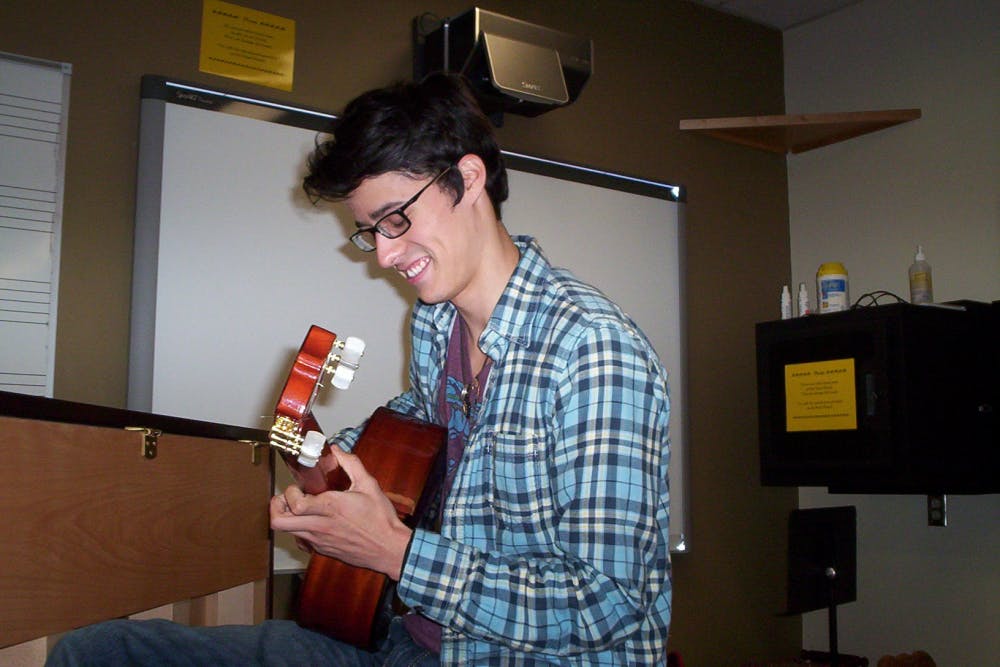UP music students compose their own pieces for MUS 409 and will perform it on Nov. 30
(-- The Beacon)
By Will Lyons Staff Writer lyons14@up.edu
With music packaged nicely in $.99 downloads, it is easy to forget about what music is actually made of in the digital age. Contrary to popular belief, it's not made up of unicorns and laser beams as Ke$ha would have everyone think, but rather notes, scales, emotion and a lot of frustration.
A group of four music students are taking their music skills, bred through years of theory and listening exercises, to a crescendo.
In MUS 409, taught by professor David DeLyser, students learn how to compose their own pieces.
Their final projects will be performed as part of "Music at Midweek," on Nov. 30 in Mago Hunt recital hall at 12:30 p.m.
"I've learned that it's easy to spend hours on just a couple bars of music," senior composition student Peary Webster said. "Every stanza can be a new idea and feeling."
Webster is working on a four- part choral piece for her final project, which has taught her that making music is not always easy.
"A lot of times you need to get over yourself and just do it," Webster said. "You need to put on your adult pants and get it done."
Senior Chris Morrell is also composing a choral piece.
He was inspired by his work with the University Singers.
"The repertoir I've had in Singers has affected what I've ended up producing," Morrell said. "There's more to composing than I originally thought."
DeLyser explained the difference between music composition and lower division classes.
"In previous courses these students have worked with rearranging existing pieces," DeLyser said. "What we're working on is a blank slate."
During the semester, his students have worked on creating original works ranging from a couple bars of music to their final: a minimum five-minute piece.
"(The students) need to like what they write and think about music that has affected them when composing music," DeLyser said. "Some students will be looking at graduate school and others are less clear, but music will be a part of their future."
Composers final projects will showcase the notes and musical ideas that made the cut after months of work and development.
"It's a lot of work over a long period of time," junior Jose Huerta said. "I've found that if you get stuck with composing you should go back to the basics."
Huerta composed the music for all five instruments in a string quintet, which consists of two violins, a viola, a cello and a piano.
"The difference between (musical) bars and an entire piece is the connective tissue," Huerta said. "It was more creative getting rid of things I didn't need."
Maureen Briare, class of ‘92 and UP's associate director of music, composes not only liturgical music, but also works on songs for the RISE campaign.
The music composition continues to help her in her career.
"I always hear a soprano melody first and then find the harmony and the bass when I compose," Briare said. "It wasn't until I took music composition here that I realized that I had all these ideas."
According to Briare, music composition comes down to passion and creativity.
"Sometimes musicians are trained to play the notes on the page," Briare said. "I say, ‘Well who wrote those notes?'"
With their performance fast approaching, many of the UP musicians hope that composing will continue to be an important part of their lives.
"It's stressful and it keeps me up at night, but I wouldn't do anything else," Huerta said.
(-- The Beacon)








